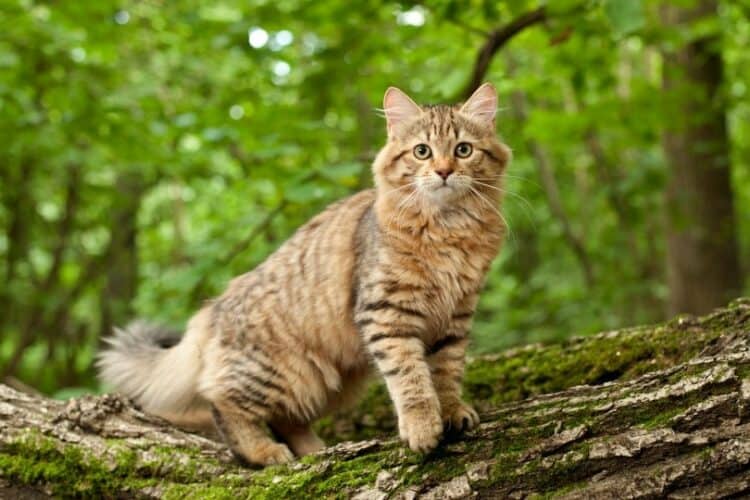As almost any cat owner will tell you, cats like to keep to themselves and enjoy solitude, which shows that they are not pack animals. Cats will form loose social groups with other cats and pets in the household, however, they do not seek company and protection from a group of cats like many other types of animals do.
For the most part, cats enjoy being alone and lack the “pack mentality”. If you want to find out more about why cats are not pack animals and how they form social bonds with their kind, other pets, and even family members, then this article has all the answers you need!
Do Cats Belong In Packs?
Cats (aside from lions who form prides) are solitary predators that do not live in socially structured groups. However, cats who live together or feral cats on the streets will find small colonies where they share their territories and available food and water sources. Cats can form strong social bonds with familiar cats, which allows cats to tolerate each other in the colonies they form.
This means that although cats are not pack animals and do not need to live in groups to feel safe, hunt for food, and feel secure, they can adapt to living with other cats if they are feral or in a multiple-cat household.
Since cats do not belong in packs, they may fight or become stressed when they are housed with cats they do not get along with, which can lead to territorial aggression and complications with cats sharing food and litter boxes in the same household. However, while most cats will adapt to living with other cats with minimal problems, they do not need to.

Why Do Cats Not Form Packs?
Cats lack the pack mentality, which is the devotion and loyalty of a same-species group of animals that pack together to form a group and rely on each other for food, safety, and to hunt together. A good example of animals with a pack mentality are wolves or dogs, who have evolved to have a good social structure with their group and have different rankings when it comes to who oversees the pack and becomes the controller while the others become submissive.
Cats do not think like this, which is what makes them solitary animals by nature. But they do have the ability to adapt to form social groups with familiar individuals if there is no competition with the members of the group, usually over food or other resources such as shelter. If you have more than one cat in your household, you might have observed their behavior as they interact together.
Some cats who get along well with each other can even be seen forming small colonies in the household and interacting together, but they will not usually be happy sharing the same litter box and food bowls until they adapt to living together and get along with each other. However, cats that live together in the household do not depend on other cats for social security, food, hunting, or comfort when they are ill.
Marilyn Krieger, a certified cat behavior consultant in San Francisco Bay says that dogs have a reputation for being more social because they hunt in packs, however, this is not the case with cats, especially when it comes to their feeding routines.
Do Cats Prefer Solitude?
As a cat owner, you may have observed that your cat prefers to be alone and do their activities by themselves. Cats do indeed prefer to be solitary in comparison to dogs who may get lonely without another compatible canine companion that they can play with and show love and affection.
Most cats still enjoy interacting with their owners and receiving affection so that they do not feel too lonely—cats still have some social needs. Some cats can even be perceived as being fond of their owners or a particular pet member in the household because cats are still a relatively social species.
When it comes to domestic cats hunting and eating, they prefer to do this alone. That said, it is common for cats to befriend other cats that they share their territory with, especially if they grew up with the cat from a young age, because the two cats will adapt to sharing and living in the same territory.
Final Thoughts
Generally, cats do not form packs and do not seek out the help of their species to form groups to hunt and live together. However, cats can adapt to live with one another with minimal issues, but the group they form will be more for social interaction rather than survival dependence and loyalty towards each other.
Featured Image Credit: Just-Mila, Shutterstock














